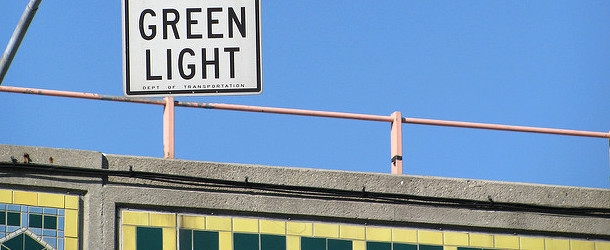It feels a little like 2006, but it’s entirely different, or so they say.
A lender by the name of Quontic Bank based out of Astoria, New York (Queens) has been offering its so-called “Lite Doc” loan to homeowners who can’t typically qualify for a mortgage.
The problem comes down to income, which can be a roadblock for many would-be homeowners, even if they have plenty of assets and great credit.
The beauty of Quontic Bank is that it’s designated as a Community Development Financial institution, or CDFI, meaning it is exempt from the Ability-to-Repay rule that generally applies to all home mortgages.
The ATR means underwriters must verify a borrower’s income, assets, job status, and their DTI ratio, among other things.
Because Quontic is a CDFI, which is supposed to generate “economic growth and opportunity” in the “most distressed communities,” it can bypass those stringent rules and make mortgages based on its own risk appetite.
Before you get in a tizzy, note that this new seemingly high-risk loan has some pretty strict underwriting criteria.
What Exactly Is Lite Doc?
Perhaps most important, the Lite Doc loan from Quontic Bank reportedly requires a 40% down payment. Yes, you read that right. A whopping 40%. I don’t know if any mortgage would ever be delinquent if it required a 40% down payment.
Today, home buyers are much more likely to put down 3% than they are 40%…and you know which ones will probably default first.
That removes a ton of the risk, but the Lite Doc loan doesn’t require income documentation if the borrower isn’t self-employed, which might be somewhat worrying.
Instead, they simply need to provide two months bank statements and verification of employment. This compares to standard underwriting protocol that calls for two years of tax returns, recent pay stubs, and so on.
But to lessen the risk even further, the Lite Doc loan also has a minimum FICO score of 700, as opposed to say the 580 minimum score needed to put just 3.5% down with an FHA loan.
That’s not all! The Lite Doc borrower also needs to show 12 months of reserves in the bank, that is, a full year of housing payments on the proposed loan including principal, interest, taxes, and insurance.
So to get this straight, the Lite Doc loan requires a 40% down payment, 700 credit score, 12 months reserves. Oh, and the property has to be your primary residence.
In other words, these loans probably won’t default anytime soon. The only weird part about the program is the fact that the Lite Doc loan is a five-year adjustable-rate mortgage.
That seemingly makes the loans riskier because they could adjust higher after just five years and if this program (or one like it) isn’t around then, these borrowers may be forced to sell if they can’t afford payments or refinance.
So far, just a small handful of these loans have been extended to borrowers in places like Miami and New York, apparently to immigrants who have the dough but not the steady job history required to get a traditional mortgage.
Could This Loan Be Better Than the Ones Major Banks Offer?
This whole thing made me think – are these loans that require less documentation better than the standard QM-compliant offerings being pitched by the likes of Bank of America, Chase, and Wells Fargo?
Just look at the yourFirst Mortgage or the Affordable Loan Solution, both of which require just 3% down payment and a 620 credit score.
That doesn’t sound like a recipe for a quality mortgage, especially if originated at a time when home prices are seen as lofty.
Sure, these borrowers might be able to qualify using full documentation, and the loans feature fixed interest rates, but what if the homeowner loses their job, or takes a pay cut?
The borrower who puts just 3% down doesn’t have much of a cushion (if any) when it comes time to sell to avoid default or foreclosure. The typical home sale may cost 8-10%, so 3% down simply won’t cut it.
Conversely, the borrower with a 60% LTV mortgage will have no trouble selling if they can’t keep up with payments, and without harming the issuing bank (or taxpayers).
I’m not saying we should usher in stated income loans again, but I do question the quality of super-low down payment mortgages coupled with what many would refer to as marginal-to-poor credit scores.
- Mortgage Rates Quietly Fall to Lows of 2025 - June 30, 2025
- Trump Wants Interest Rates Cut to 1%. What Would That Mean for Mortgage Rates? - June 30, 2025
- What the Fannie Mae and Freddie Mac Crypto Order Really Means - June 26, 2025


Hi! How about this period(June, 2022).I will wait for your answer.Thank you for your information.
Best,Peter